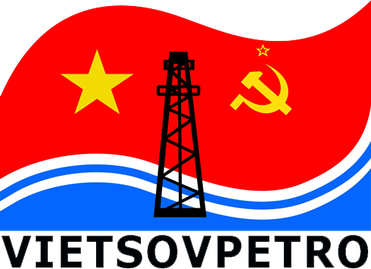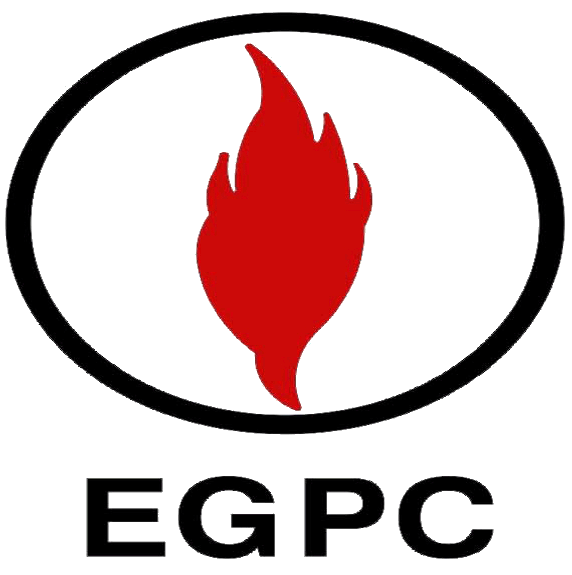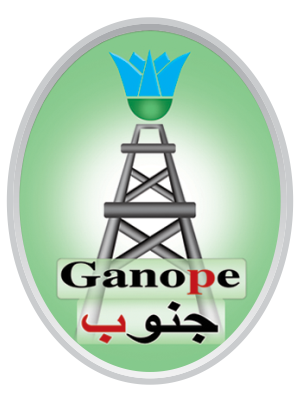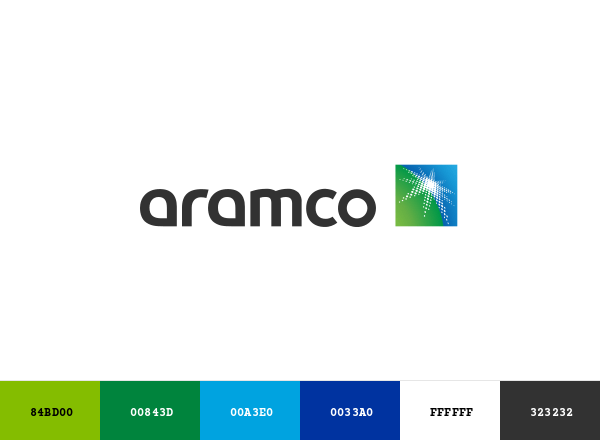Company Directory - Petroleos de Venezuela S.A.
Company Details - Petroleos de Venezuela S.A.

Petroleos de Venezuela S.A.
WebsiteCaracas, Venezuela
Petroleos de Venezuela S.A. (PDVSA) is the state-run oil and natural gas company of Venezuela, responsible for the exploitation, production, refining, and marketing of hydrocarbons. It plays a critical role in the Venezuelan economy and is one of the largest oil companies globally, involved in various business sectors related to energy and natural resources.
CCI Score
CCI Score: Petroleos de Venezuela S.A.
-28.66
0.13%
Latest Event
PDVSA Joint Venture Supports Maduro's Authoritarian Regime
PDVSA resumed oil production as part of a joint venture with Chevron, a move that provides a crucial financial lifeline to Nicolás Maduro’s repressive regime. This partnership, established despite longstanding concerns over human rights abuses and undemocratic practices in Venezuela, links the state-run oil company directly with activities that help sustain an authoritarian government.
Take Action
So what can you do? It's time to make tough choices. Where will you cast your vote?
- Shop Alternatives
SEE ALL - Use Your Voice
OTHER TOOLS - Investigate
- Share the Score
SUPPORT CCI
ACCOMPLICE
Petroleos de Venezuela S.A. is currently rated as an Accomplice.
Latest Events
 DEC272024
DEC272024PDVSA resumed oil production as part of a joint venture with Chevron, a move that provides a crucial financial lifeline to Nicolás Maduro’s repressive regime. This partnership, established despite longstanding concerns over human rights abuses and undemocratic practices in Venezuela, links the state-run oil company directly with activities that help sustain an authoritarian government.
-70
Public and Political Behavior
April 1
By engaging in a joint venture that channels revenue to Maduro’s regime, PDVSA is complicit in sustaining authoritarian practices, undermining democratic norms and contributing to the repression of dissent.
-60
Business Practices and Ethical Responsibility
April 1
The continuation of the joint venture with Chevron, despite widespread reports of human rights abuses and environmental damage linked to fossil fuel operations, raises serious concerns about PDVSA's commitment to ethical business practices.
-50
Economic and Structural Influence
April 1
By maintaining a joint venture that bolsters the financial stability of Maduro's regime, PDVSA plays a critical role in underpinning economic structures that enable systemic repression and corruption within Venezuela.
 APR172024
APR172024On April 17, 2024, the US Treasury's OFAC released General License 44A, mandating the wind down of business transactions with Venezuela’s state-owned oil company PdVSA as a response to the Maduro regime’s suppression of democratic reforms and political intimidation. The sanctions are part of broader measures taken due to the obstruction of opposition participation in elections.
-80
Public and Political Behavior
April 1
PdVSA, as a state-run enterprise under Maduro, is implicated in the suppression of democratic processes by supporting policies that result in the exclusion of opposition in elections. This association with authoritarian political practices justifies a strongly negative score in the Public and Political Behavior category.
Venezuela Energy Sanctions Reimposed Barring Democratic Reforms
-40
Economic and Structural Influence
April 1
The sanctions highlight how PdVSA's economic activities under an authoritarian regime have led to structural isolation, limiting its access to international financial systems and further entrenching the Maduro government's control over the economy.
Venezuela Energy Sanctions Reimposed Barring Democratic Reforms
 DEC182023
DEC182023On December 18, 2023, U.S. wildcat entrepreneurs, led by Harry Sargeant III, met with representatives of PDVSA in Caracas. The meeting, part of a broader effort to revitalize Venezuela’s run‐down oil sector under relaxed sanctions, signals PDVSA’s increasing engagement with politically conservative and risk‐acceptant investors, a move that may reinforce economic dependencies and align with Republican business interests.
-20
Executive Political Engagement
April 1
The meeting between PDVSA representatives and U.S. wildcat entrepreneurs, including a prominent figure like Harry Sargeant III, illustrates executive political engagement with politically conservative actors. This alignment raises concerns as it potentially supports interests that may undermine labor rights and democratic accountability.
Exclusive: U.S. Wildcat Entrepreneurs To Invest In Venezuelan Oil
-25
Economic Collaboration
April 1
The negotiation for deals such as the purchase of asphalt shipments underlines an economic collaboration that can deepen PDVSA’s dependency on foreign capital with a high risk appetite. This can undermine long‐term economic sovereignty and may further entrench systems that favor corporate profit over workers' rights and public accountability.
Exclusive: U.S. Wildcat Entrepreneurs To Invest In Venezuelan Oil
 OCT012023
OCT012023The U.S. Treasury designated Petroleos de Venezuela, S.A. under Executive Order 13850 for its involvement in extensive corruption schemes and as a key lever in supporting Maduro’s authoritarian regime, freezing its assets and barring U.S. transactions.
-60
Public and Political Behavior
April 1
PDVSA’s long-standing role in channeling corrupt financial schemes and diverting state resources to support authoritarian governance contributes to unsound public and political practices. The Treasury’s action highlights its complicity in upholding regimes that resist democratic transition.
Treasury Sanctions Venezuela’s State-Owned Oil Company Petroleos de Venezuela, S.A.
-40
Business Practices and Ethical Responsibility
April 1
The article documents how PDVSA has been involved in large-scale corruption, including schemes to embezzle billions, which evidences deeply unethical business practices that bolster an authoritarian regime.
Treasury Sanctions Venezuela’s State-Owned Oil Company Petroleos de Venezuela, S.A.
-50
Economic and Structural Influence
April 1
As Venezuela’s state-run oil company, PDVSA wields significant economic influence which has been exploited to fortify the regime’s power structure. The sanctions aim to curtail this economic leverage that underpins authoritarian control.
Treasury Sanctions Venezuela’s State-Owned Oil Company Petroleos de Venezuela, S.A.
 MAR312023
MAR312023An AP investigation reveals that internal PDVSA documents expose billions in unpaid invoices and corrupt dealings with obscure brokers and shell companies. These practices have contributed to a broader pattern of opaque, politically influenced management under Maduro's regime.
-50
Public and Political Behavior
April 1
The article highlights how PDVSA's management under an authoritarian regime has allowed corrupt practices and politically motivated mismanagement, undermining democratic accountability and transparency.
-70
Business Practices and Ethical Responsibility
April 1
Internal documents reveal significant unethical business practices including missing billions, dubious accounting maneuvers, and reliance on obscure intermediaries. These issues reflect a deep-rooted systemic corruption within PDVSA, undermining ethical standards and accountability in its business operations.
 SEP282016
SEP282016Multiple international authorities, including those from the United States, Spain, Andorra, and Switzerland, are investigating PDVSA over allegations of systemic corruption, money laundering, and bribery that have involved billions of dollars. The investigations focus on the misuse of PDVSA funds allegedly channeled into black-market currency schemes and illicit financial flows, highlighting longstanding ethical and structural issues within the state-run enterprise.
-70
Business Practices and Ethical Responsibility
April 1
The revelations of widespread bribery, money laundering, and corruption within PDVSA highlight severe lapses in ethical business practices. Such mismanagement undermines corporate accountability and disrupts equitable resource allocation, with negative repercussions for workers and marginalized communities dependent on fair economic practices.
PDVSA at the Center of International Anti-Corruption Efforts
-30
Economic and Structural Influence
April 1
The alleged misappropriation of funds and structural corruption within PDVSA reflect deep economic and structural distortions. These practices disrupt fair economic policies and reinforce systemic inequalities, contributing negatively to broader efforts for accountable governance.
PDVSA at the Center of International Anti-Corruption Efforts
 FEB142012
FEB142012A Venezuelan organization published a report condemning the human rights impacts of PDVSA's operations, and the state-run oil company did not respond to the allegations. This lack of engagement highlights concerns about labor rights and ethical business practices.
-50
Labor Relations and Human Rights Practices
April 1
The report condemning PDVSA for adverse human rights and labor impacts, alongside the company’s failure to respond, indicates a significant neglect of worker rights and ethical responsibilities. This inaction raises concerns about PDVSA's accountability and commitment to the protection of marginalized communities.
 DEC082002
DEC082002Following the December 2002 oil strike at PDVSA, the company fired over 18,000 workers in a move widely documented as a politically driven suppression of legitimate union activity and worker dissent, accompanied by subsequent blacklisting of those dismissed.
-80
Public and Political Behavior
April 1
PDVSA's decision to summarily dismiss a vast number of workers immediately following the strike, in conjunction with the politically charged rhetoric linking dissent to enemy conduct, reflects a clear manifestation of political repression. This action undermines workers' freedom of association and signals complicity with authoritarian practices.
-95
Business Practices and Ethical Responsibility
April 1
The mass firing and subsequent blacklisting of over 18,000 workers represent blatant violations of ethical labor practices and human rights standards. Such corporate behavior not only undermines fair labor relations but also reinforces an environment of repression and authoritarian control.
 DEC012002
DEC012002Following the 2002 oil strike and subsequent events, PDVSA implemented overt political discrimination by dismissing and blacklisting thousands of employees deemed disloyal to the government. The use of politically charged tools such as the Tascón list, alongside public statements by energy ministers and PDVSA leadership, institutionalized repression against workers and critics, reinforcing authoritarian practices.
-80
Public and Political Behavior
April 1
PDVSA’s actions—firing thousands of workers for their political beliefs and public dissent, and promoting political loyalty through coercive practices—reflect a deliberate use of state power to enforce conformity and suppress opposition. This behavior directly supports authoritarian regimes by eliminating dissent.
-70
Labor Relations and Human Rights Practices
April 1
The mass firings and blacklisting of workers—actions taken against participation in a legitimate labor strike—demonstrate severe violations of workers’ rights. Such practices not only undermine labor and human rights but also serve to reinforce an environment of fear and repression under an authoritarian regime.
 DEC012002
DEC012002In the aftermath of the two-month-long oil strike in 2002, PDVSA engaged in overt political discrimination by firing over 18,000 workers, blacklisting them from future employment, and mandating loyalty to the government. This action sidelined dissent and bolstered authoritarian practices within the state-run oil company.
-80
Public and Political Behavior
April 1
PDVSA’s mass dismissal and political blacklisting of workers, which punished dissent and enforced ideological conformity, demonstrates a clear alignment with authoritarian practices under government directives. This suppresses free political expression and supports a climate of political intolerance.
-90
Labor Relations and Human Rights Practices
April 1
The discriminatory firing of striking workers and subsequent blacklisting by PDVSA represent a significant violation of labor rights and human rights practices. This politicization of employment not only undermines fair labor practices but also serves as a tool to intimidate and silence dissent within the workforce.
Alternatives

Moscow, Russia
-16.89

Hanoi, Vietnam
1.78

Cairo, Egypt
-2.00

Houston, USA
-6.57

Calgary, Canada
-20.45

Abu Dhabi, United Arab Emirates
-25.00

Egypt
-40.62

Moscow, Russia
-46.67

Dhahran, Saudi Arabia
-54.02

Corporation
15.45
Industries
- 211120
- Crude Petroleum Extraction
- 324110
- Petroleum Refineries
- 486110
- Pipeline Transportation of Crude Oil